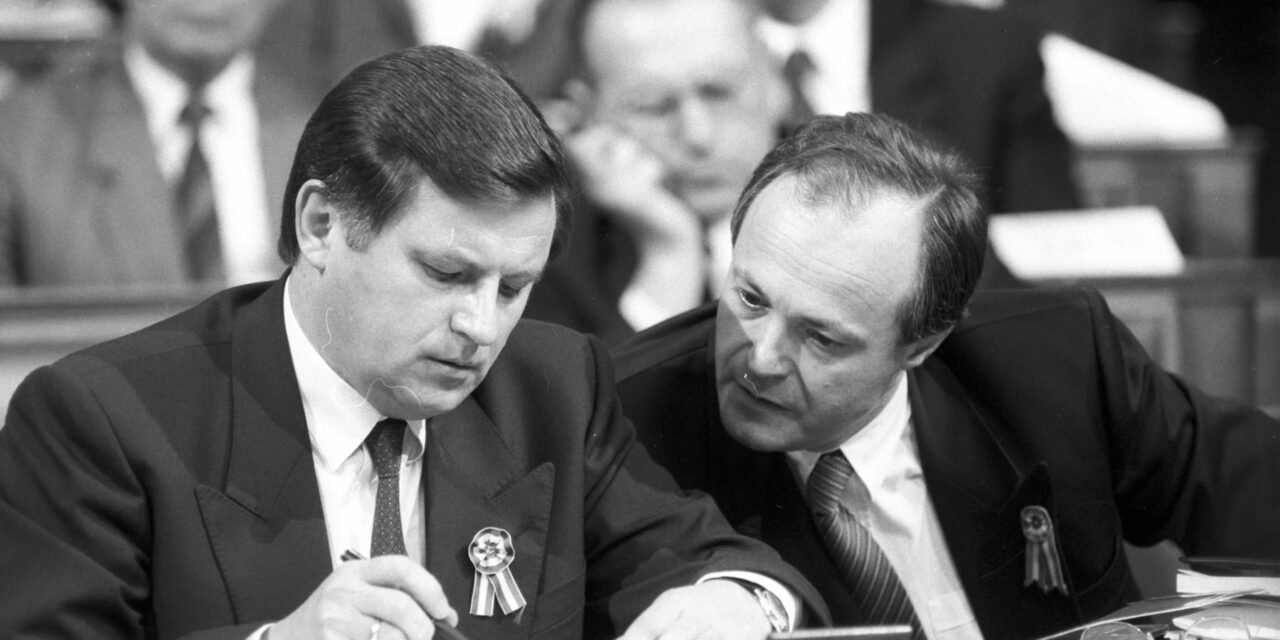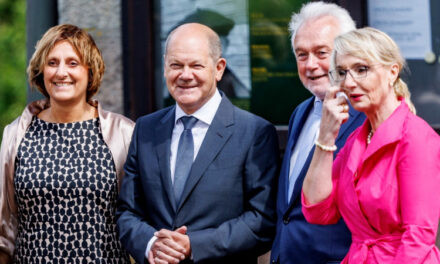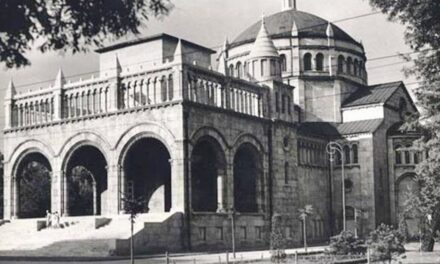We continue the series that was originally published on the PestiSrácok portal. The author, Zsuzsanna Borvendég, is a historian, and her subject is, of course, uncovering the crimes of the dark communist past. Among our readers, there are certainly those who missed the original series, but those who did not get to know all the episodes should also read it again. Knowing the whole picture, can we understand how we got here?
The day of the Griff Continent was soon sacrificed. György Dalmady failed in the spring of 1989, was suspended and proceedings were initiated against him. The first-instance trial ended in February 1990, and in the second-instance case, the Supreme Court issued a final judgment in September 1990. György Dalmady was sentenced to five years and six months in prison for multiple counts of bribery; continuously committed violation of state secrets causing serious harm; violation of foreign exchange management committed continuously, especially for a large value, in a business-like manner and in a criminal conspiracy; twenty-six counts of abuse of office; for the crimes of racketeering and embezzlement. On February 4, 1991, the President of the Republic rejected his request for clemency, in which he requested the suspension of the imposed prison term for a probationary period.
One of the few accountability
Siklósi was also relegated to the background: on December 31, 1988, he retired, handing over the leadership of Pallas to Jenő Németh , the former deputy president of the Information Office. The publishing company was struggling with serious financial difficulties. Of the approximately four hundred published papers, only a few were not unprofitable, and moreover, the company's finances were difficult to make transparent. As in the majority of state-owned companies, the transfer of corporate assets was already in full swing at Pallas , and Németh issued an internal order to stop it - you can read a part of this document in one of the previous sections.
Documents that disappeared without a trace
The investigation against Dalmady sensitively affected the owners of Griff as early as the spring of 1989, since with the cooperation of the operative officer they were able to commit their economic abuses under BM cover, for example, they transported large quantities of contraband to Hungary without inspection and customs duty. And in the spring of 1990, Pallas also began to investigate the intertwined financial affairs of Interedition and Griff. Jenő Németh terminated the Interedition Subsidiary on July 1, 1990, Norbert Siklósi from his position as CEO. Some of Interedition's employees, as well as the right to publish the newspapers published by the company, were transferred to Delta Subsidiary, which was also purged shortly before. Effective April 15, 1990, to Ferenc Budai , MNVK-2. his officer had to step down as CEO of Delta; his place Nádor Mara , who had to command the merging of Interedition into Delta. The preparation of accounts and inventories was just as problematic as could be expected given the history.
Sándor Bagossy , Interedition's accountant, by June 30, but this did not happen . János Molnár , who was the owner of Griff , as he wanted to get rid of the business part of Griff Kontinent inherited from the subsidiary. During the examination of the documents, it was revealed that due to the mostly identical staff, accounting and all other business activities were intertwined in the documentation of the two companies, Interedition and Griff, and in the affairs of the other businesses they created, which resulted in a series of irregularities. For example, "due to incomplete data, it is impossible to track how much foreign currency Interedition handled".
The network is everywhere
At the end of August 1990, in order to clarify the situation, a members' meeting was convened, at which the owner János Molnár, managing director István Várkonyi Alfréd Kuttner , as well as several representatives of Pallas, such as general manager Jenő Németh and dr. Gábor Liszkay is a lawyer. István Várkonyi, the former editor-in-chief of Népszava, was not unknown to Norbert Siklósi's business . This is the company that István Práczki wrote about:
After the IPV, Várkonyi went to Interpress Magazin, a newspaper operating as a cover company for the secret service. Péter Szolnok , the first head of the Press Residence, was present Szolnok himself was a member of the 240-strong staff of the Interedition-Griff company, presumably as the editor-in-chief of one of the papers. According to the testimony of the minutes, the abuses committed by using Griff and Interedition caused several million damages to Pallas , and the management of the parent company unsuccessfully requested the submission of the documents necessary for settlement, but the authorities refused to do so citing various reasons. Norbert Siklósi did not personally participate in the meeting due to health reasons. The document reveals that the two companies in question created several companies, showing a wide range of different activities, as they dealt with many things, from advertising organization to furniture delivery and publishing sex magazines. The meeting ended with the suggestion that the representatives of Interedition-Griff were given an ultimatum: if they did not hand over the missing documents by noon the next day, a criminal complaint would be filed against them.

Budapest, January 15, 1990. On January 15, around a thousand people gathered in Hősök Square to protest against the government's economic policy and new price increases. The poor protestors knew it wrong, in Hungary at that time privatization itself was "freedom robbery". In the picture: protesters in front of the Parliament. MTI Photo: Zsolt Demecs
Death of the Griffin
Of course, the documents did not arrive. More and more deadlines were set, but there is nothing in the documents found in the archives to indicate that the settlement was finally made. I don't know about a criminal complaint either. In September 1990, a balance sheet audit was conducted based on Interedition's financial documents, but "the documentation required for the audit disappeared from time to time" . The investigation established that the subsidiary did not comply with its tax payment or social security obligations, and its accounting methods differed from the regulations. During its integration into Delta, the handover did not take place for months, as the necessary documents were not found. In the meantime, Interedition's creditors and business partners successively submitted their claims to Pallas, which did not even know the contracts on which the debts were based.
Pallas also briefly got rid of its 50% ownership stake in Griff Kontinent. He made a price offer to János Molnár - who, as a co-owner, had the right of first refusal - and requested the payment of five and a half million forints for half of the business share of the company registered with a share capital of four million forints. Molnár didn't have many options, he bought the other half of Griff Kft. Where was Sándor Újváry in Budapest in 1938 and then restarted in Munich in 1952? After Ferenc Kazinczy's epigram, the dedication of "Good and well" chosen as his poetics? In addition to the signatures of János Molnár on the surviving documents, we can also find the seal of Griff Kontinent Kft., which preserved the griffon bird of the Újváry-Griff emblem, the inscription "Jót s jól", but the book was torn from his hand, a globe was placed in its place and signed " export-import". I am convinced that we could not find a more self-revealing, more cynical example of a pictorial representation of the denial of values hidden in the mask of globalization.
The endgame of the Griff Publishing House has thus been completed. The legal successor ltd. established after the death of Sándor Újváry. it did not create anything lasting during its shameful operation. Instead of publishing books, the new owners committed a series of economic crimes, taking advantage of the confusion that accompanied the collapse of the socialist system and using their well-established secret service and political connections. Griff Kontinent Kft. disappeared without a trace from the history of Hungarian book publishing - this time, the absence of a trace is taken literally: János Molnár took everything that could be moved from the office, which was illegally counted as an apport and belonged to Pallas. From technical equipment to furniture to the cut-off telephone receiver...
Source: PestiSrácok
Author: historian Zsuzsanna Borvendég
On the cover photo: Prime Minister Miklós Németh and Deputy Prime Minister Péter Medgyessy, two key figures of "spontaneous privatization", talk at the last session of the Parliament elected in 1985. ( MTI Photo: Attila Kovács )













